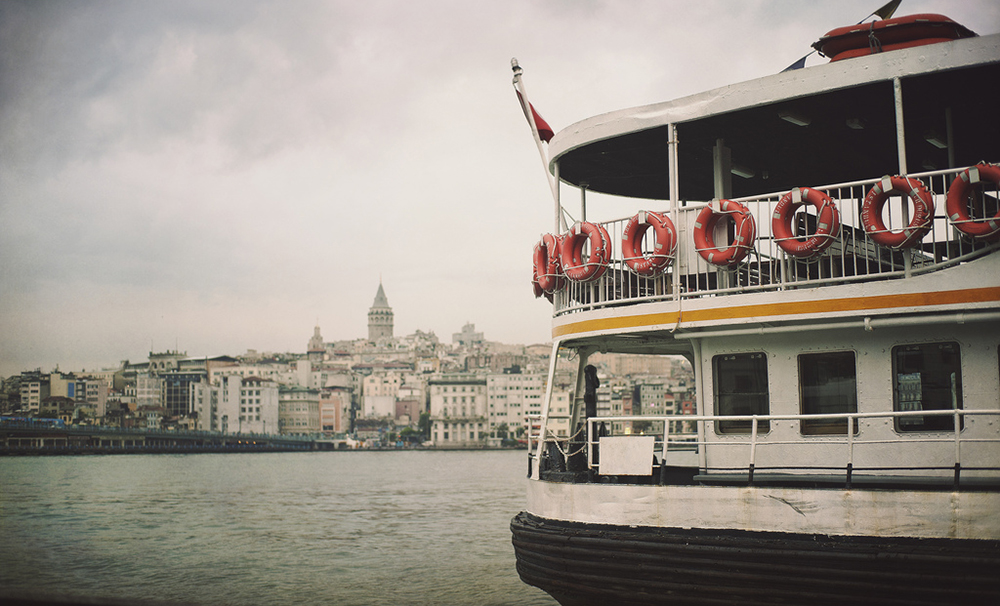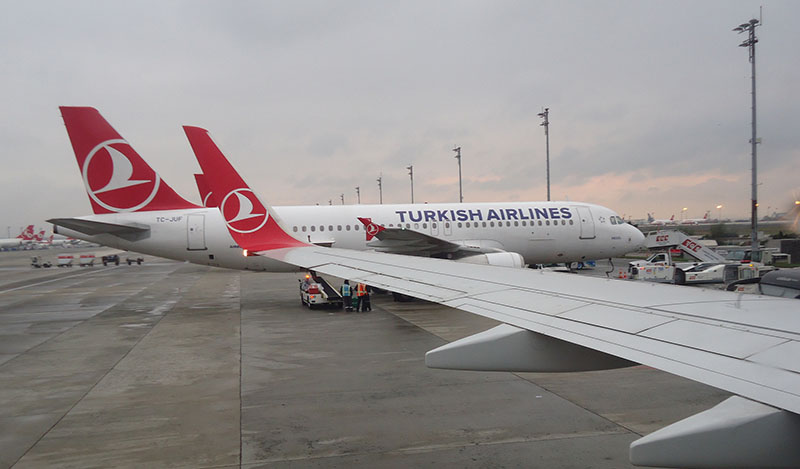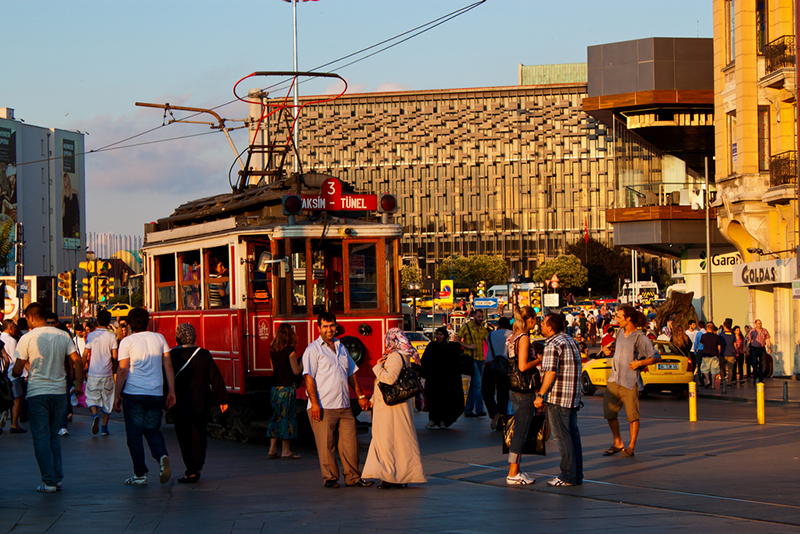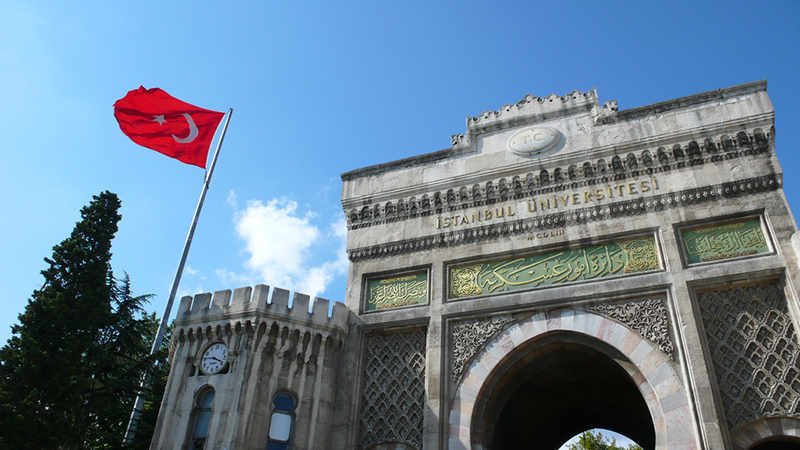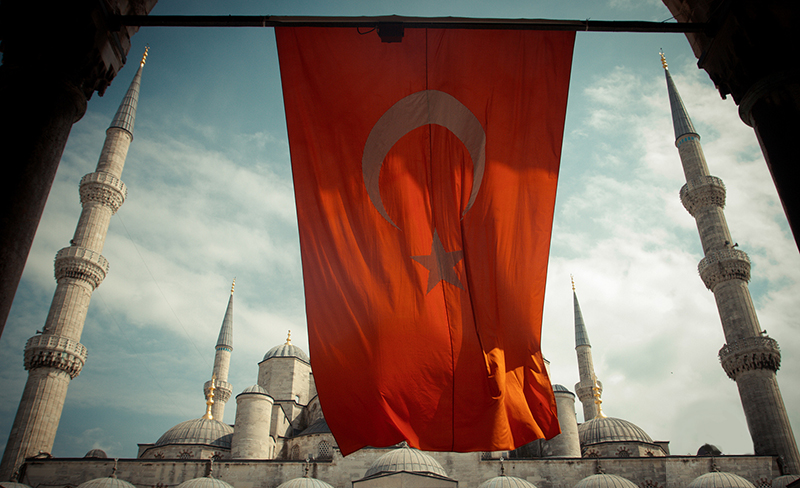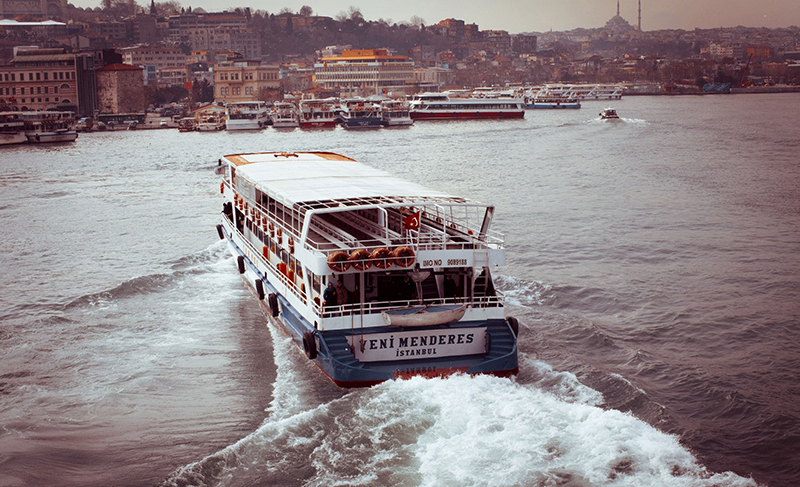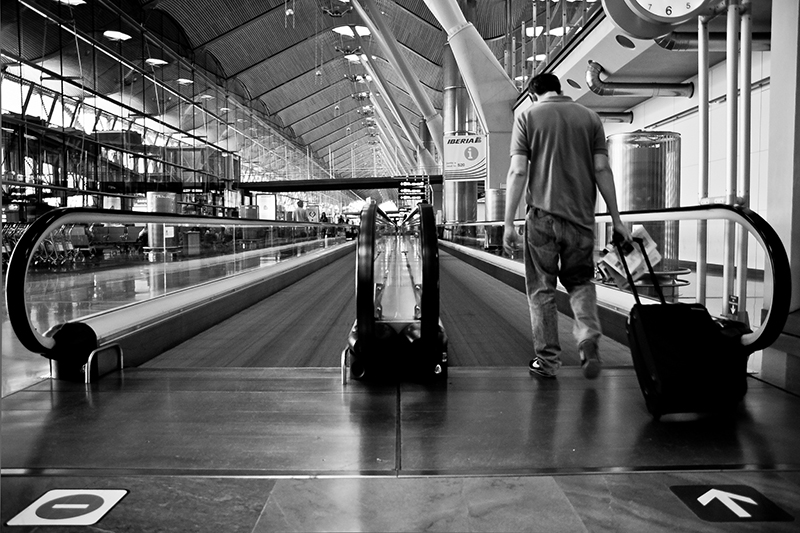I still remember the day I came to Turkey. While making a connection at London’s Heathrow Airport, I happened to glance at a newspaper headline announcing that a bomb in Izmir had killed several people. At the time I had no idea where Izmir was, nor why someone would choose to bomb it, but rather than taking it as an ominous message, I chose to downplay the significance of the event. I felt bad for the victims, but only in the abstract way that we all commiserate with things that do not directly affect us. Besides, I did not want to infect the optimism I felt at taking an academic job in Istanbul, where I had been asked to help found a literature department. I would engage in exactly this sort of hedging and deferral over the next ten years: overlooking bombs, tear gas, the senseless killing of youths during the Gezi Park uprising, the ousting of judges, and the government takeover of virtually every media outlet. But things finally reached a limit with the July 2016 coup d’état attempt by a faction within the Turkish military and the growing restrictions on academics and disturbing social demonstrations that followed in its wake.
I arrived during a relatively stable period in Turkey’s history, but the country has had more than its share of political, social, and economic upheavals throughout the 20th century, including three previous major coups. Being an expatriate in Turkey means sublimating doubts and anxieties over the rise of religious fundamentalism or the shrinking value of the Turkish Lira. I discovered that it is disturbingly easy to accept small changes like restrictions on alcohol sales or increasing government intervention and to think of larger looming problems, like the devastating earthquake that is slated to strike Istanbul or ISIS restoring the Caliphate, as vague possibilities that will never arrive. There is also a culture of postponement and acceptance in Turkey, buttressed by a native Turkish belief that “things will happen if God wills it” that makes it easier to dismiss the future in favor of the present. So I acknowledged disturbing possibilities, stored them somewhere in the back of my mind, and moved on.
My memory of reading about the Izmir bombing while at Heathrow was brought back to consciousness by the bomb attack on Istanbul’s major airport a month before the coup. The chilling thought that it could have been me, my family, or my friends at the airport ran through my mind. But the attack also highlighted the limited options for leaving the country should a disaster occur. Turkey is a fairly large country by European standards, and crossing the country’s borders is not exactly easy or inviting. Russia lies across the Black Sea to the north, Iran to the east, and ISIS to the south. To the west are Bulgaria and Greece, but train travel is horribly slow and there is only one major road that would be easily closed or at least heavily patrolled in any such emergency. If something were to happen, the airport is the way out for anyone trying to flee the country, a fact that would be vividly brought home to me during the course of the week.
The coup itself began on Twitter. Reports started coming in of tanks occupying the Bosphorus Bridge and clashes between soldiers and police in the streets. The idea that forces designed to protect citizens would end up fighting each other seemed unreal, until the uncanny moment when reports of fighter jets became reality as they ripped through the night flying incredibly low over the apartment I shared with my wife and 15-month-old daughter. Nor was there any mistaking the unusual content and timing of the call to prayer. I had come to enjoy our muezzin, and would often turn off music in order to better hear him, especially during his melodious evening prayer. But the night of the coup a very different feeling emanated from the loudspeaker behind our house. It seemed vaguely menacing: the muezzin recited a quick prayer before exhorting citizens to take to the street to support President Recep Tayyip Erdoğan and defend democracy. This special call, or sela, was shortly answered throughout the night by honking cars with shouting passengers on the street below our apartment. My wife and I wondered just how far Erdoğan’s supporters and the coup organizers were willing to go in their bid for control of the country, and we feared the most frightening possibility of all — a civil war.
The cacophony from the street might normally have been mistaken for the exaltations of 18-year-olds newly inducted into the army who often cruise up and down our road, hanging out of cars with Turkish flags draped over their shoulders. We might have slept through the call of the muezzin, as usual, despite the fact that it was now coming every half hour instead of the typical five times a day. But huddled together over a glowing screen in a dark apartment, the glare of Facebook posts and tweets kept us on edge, and we waited anxiously for the next report. The most unsettling was the news that the airport had been taken over by the military and was closed. All we could do was put our child to sleep and wait anxiously for the dawn, hoping that the morning light would bring both an end to the sonic assault and some sort of clarity and order.
It was odd how things returned to seemingly normal so quickly. The next day, the old man who swept the park in the morning swept the park in the morning. Children got on buses. Men and women went to work. There was, admittedly, an eerie lack of people on the street, yet given what had happened the night before, it was surprising to see so much of the city functioning. But these lulls were simply a false sense of normality that helped lower my defenses. A curious ebb and flow characterized the entire week. Government announcements, the demonstrations that followed them, and the news reports that covered them came in a series of waves, giving me just enough time to think that perhaps the worst was indeed over before cresting again, lifting heart rate and anxiety level. What was happening? And more to the point — what was going to happen?
Hopeful yet hesitant, I returned to the university. Located outside the city in a beautiful forest setting, a feeling of calm reigned on campus. It was as if the entire university population, both students and faculty, needed some semblance of order and sought it there. The campus was full: People dined outside and chatted, nervously releasing all the pent-up energy stored over the weekend. Not that anxiety was absent — far from it. But the sun was shining and, for a time at least, the uncertainty had abated, offering another reprieve where we could gather our breath.
Everyone looked for the mood to continue, but it was soon marred by the news that the Deans had been asked to resign. Not just the Deans at my school: all the Deans in Turkey. The idea that a whole class of administrator could be fired, en masse, without a reason, was both ominous and astonishing. It was at that moment when I started to realize the true scope of what was happening. This was about power — demonstrating it, consolidating it, and performing it, and on a scale that, for this American observer, was unprecedented. The numbers of those dismissed, and even more disturbingly, arrested, continued to grow, and I wondered if any of my friends, colleagues, or even myself would be next. Erdoğan seemed ready to eradicate any semblance of resistance, and there was no means of stopping or even mitigating the purge. Yet in America, I was so used to academics being overlooked that this level of attention, though unwanted, was truly amazing. It was difficult to believe that we were actually being singled out as a threat.
That night, I rushed back to my office to begin preparations for our departure. I am a scholar who focuses on Beat Generation writers, and the idea of rebellion is built into my work. Not only had I published on drug use, sexual licentiousness, and the general iconoclasm that is part and parcel to writing on the Beats, but I also had a 300-page manuscript sitting on my desk that examined the reception of the Beats in Turkey as a form of cultural resistance. Titled Translating the Counterculture, the book examines how the Beats’ social critique has been repurposed in Turkey and discusses controversial issues such as the recent censorship trial William S. Burroughs’s novel The Soft Machine has undergone in the country. Even the ironic fact that the Turkish government itself awarded me a prestigious grant to conduct my research on this “underground literature” phenomenon was no safeguard against my work being used against me. At least I had the comfort of knowing I would soon be on a plane with a copy of my manuscript in hand, where I could watch events from afar. My Turkish colleagues, who needed visas and the time to acquire them, did not have that same luxury.
The coup produced contradictory feelings. Walking the streets of my Istanbul neighborhood on a warm summer evening, it was hard not to sympathize with young covered girls with Turkish flags over their shoulders smiling and laughing, or an exuberant old woman waving a flag at cars passing in the street. As almost everyone agreed, the idea that the military should attempt to overthrow an elected government was unacceptable. Yet there was a hint of menace in these celebrations. Erdoğan and his supporters claimed to be on the side of a democratic and inclusive Turkey, but it seemed clear that the failed coup attempt was also a chance for payback. After years of living under the secularist doctrines initiated by the founder of modern Turkey, Mustafa Kemal, those who believed in a more religious and conservative Turkey were now firmly in control. I felt concern for my Turkish friends and colleagues, the majority of whom were secularists committed to progressive social causes, and worried that as a non-Muslim foreigner, I would now be considered undesirable to this new version of Turkey.
Erdoğan was expected to make another important announcement that afternoon. I knew it would not be good, but I was learning to focus on the tasks in front of me rather than fretting about his next move. Besides, what else could he do? Weren’t the Deans and Rectors he asked to step down enough? How many more arrests were needed? So I deleted and transferred my papers and files. And I waited.
Erdoğan’s announcement hit me where it hurt: He issued a travel ban for academics. It was not immediately clear if the ban covered foreigners, but in any case, the news was hardly reassuring. One of my Turkish colleagues had visited my office earlier in the day and related the advice of her father, a man who had seen a few coups himself: “Make a list of things you will not stand for, and if one of those things occurs, then leave.” I realized that being told I could not leave the country was one of those things. Though I knew the idea that I should be allowed to go where I want whenever I wanted was coming from a position of American privilege, it proved the final straw. I did not want to wait to find out the nuances of the decree, and so my wife and I began to pack for an immediate departure.
Our decision to leave was given added impetus by an “armada” of Turkish fishing boats, ferries, and pleasure craft cruising the Bosphorous straight outside our house, filled with screaming Erdoğan supporters blaring music and flying some of the largest Turkish flags I had ever seen. Fishing boats had passed by before with passengers yelling at the top of their voices, probably at the restaurant that we lived above, where patrons were fond of sitting outside by the water in the evening hours drinking the Turkish spirit raki and eating fish and melon. Alcohol consumption produced a flashpoint for Erdoğan’s supporters. The day after the coup attempt in the park below our house, a zealot had screamed at the top of his voice into the face of a man calmly drinking a beer and checking his cellphone. I now realize that the armada was not coming for us. But when one boat pulled up towards the dock to unload some passengers, at the time it was hard not to think of a mob approaching our door to confront Americans whose country had launched airstrikes against fellow Muslims from a base in Turkey. Worse still, it was rumored that the U.S. was responsible for the coup, or at the very least, still supported its supposed leader, the Turkish preacher Fethullah Gülen, who had expatriated himself to Pennsylvania and had no intention of returning to stand trial.
It is hard to describe the feelings and anxieties swirling in head and heart as mobs of people, whose ideas and feelings are, it seems, very much opposed to your own, wail and holler outside your window. One classic means of quelling paranoia is reminding yourself how “crazy” you sound. But after the coup, nothing sounded crazy. Conspiracy theories abounded, rational thought was in short supply, and what sounded like paranoia became wise precaution. So we shoved ten years into six suitcases, called a cab, and prayed that the customs agents would let us through passport control.
Deep down I had always suspected that my last day in Turkey would end with a mad dash to the airport. After a nerve-wracking two-hour ride in bumper-to-bumper traffic with hundreds of armed police lining the street, the calm of the airport was surreal. It was another bizarre lull. The polite counterman checked in our possessions and even waived some of the exorbitant fees our bulging suitcases clearly demanded. But the real hurdle was passport control. Despite my frantic calls to our human resources department and the U.S. consulate, we still did not know the precise limits of the ban or whether foreigners were exempt. Would they stop us? With the scene from the film Midnight Express where the protagonist is arrested at the airport flashing through my mind, we approached the desk with feigned nonchalance. The officer looked at us, looked at our work permits that clearly identified us as academics, and picked up the phone. It was a tense two minutes, as we played peek-a-boo with our daughter, pretending we did not know what he was asking his boss.
And then we were through.
As both a writer and a teacher of writing, I realize that a story like this should include some sort of conclusion that makes sense of the experience for the reader. Yet I find it difficult to pinpoint a final truth. Living in Turkey was a wonderful experience, and I have nothing but fond memories of all my gracious Turkish friends, colleagues, students, and neighbors. My daughter was born in Istanbul, and I will always miss walks along the Bosphorous and spirited conversations over grilled fish and mezes. I do not regret spending a decade of my life in Turkey. But the coup attempt has certainly taught me something about the privileges and ramifications of being a U.S. citizen. While being an American means that you can always leave (it was announced later that the travel ban excluded foreigners), it also means that you are always a potential target. Even so, my experience in Turkey has also made me thankful. As much as U.S. academics complain about very real problems like shrinking budgets, expanding bureaucracy, and government intervention, we still enjoy true academic freedom. We should remember, cherish, and protect our fairly transparent employment rules and the ability to write and publish on topics that are important to us. Perhaps most importantly, my last week in Turkey forced me to step outside my normal self and to think about what happens when the social fabric starts to tear. I would by no means suggest that a few days of anxiety and fear for my family’s safety means I can understand what life must be like for a black teenager harassed by the police, or for a migrant worker being arrested at a border crossing. But it is both unsettling and illuminating to find yourself a potential victim, without recourse to a government that is supposed to protect you or even to other members of what we can only hope will remain a “civil” society. •
Images courtesy of happykiddo, shankar s., Theophilos, Augapfel, Remon Rijper, Gokhan Altintas Photography and Hernan Piñera via Flickr (Creative Commons).
